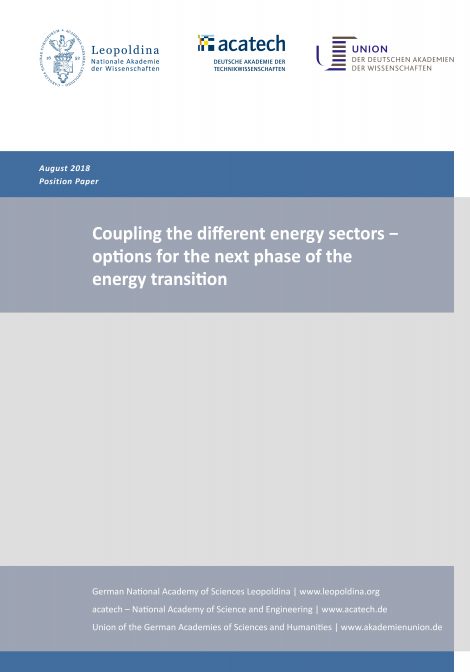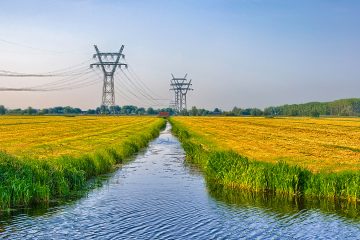Coupling the different energy sectors – options for the next phase of the energy transition
Climate targets can only be achieved through explicit strategic change in energy policy. In order to be able to integrate more renewable energies into the overall system and lead the energy transition to its ultimate success, the energy system has to be optimised holistically throughout all sectors, and the individual sectors must be more thoroughly interwoven with one another.
A working group in the Academies’ Project “Energy Systems of the Future” (ESYS) has developed options for action for Germany based on expert discussions, a comparison of relevant energy scenarios, as well as their own model calculations. The central results of their position paper are:
- Electricity from renewable sources will become the prevailing energy source within the energy system. Demand for electricity could potentially double by the year 2050. As a consequence, it would be necessary for the capacity of wind power and photovoltaic plants to increase from five- to seven-fold.
- Technologies such as electric vehicles and heat pumps, which use electricity directly and efficiently, will become increasingly important in the future. But synthetic combustibles and fuels are also presumably indispensable.
- Short- and long-term storage as well as flexible power consumption models must aid in compensating for the volatile production of electricity in the future. Also, reserve capacities will be needed in order to safeguard supply during phases of “Dunkelflauten”. Its scope corresponds roughly to today’s conventional power plant complex.
- The energy transition leads to systemic additional costs every year amounting to one to two percent of the 2016 German gross domestic product. Intelligently set framework conditions will contribute to the containment of these costs.
- The central regulatory element here is a unified, effective price for CO2. This can be achieved once the European Emissions Trading System is extended to all sectors and applied with a minimum price, or a CO2 tax is introduced.acatech/Leopoldina/Akademienunion: Coupling the different energy sectors – options for the next phase of the energy transition (Series on Science-Based Policy Advice), 2018. ISBN: 978-3-8047-3673-3.




